The Two-Day Forum of Newmag and the Gulbenkian Foundation Concludes: “The World and Us”
03/29/2025
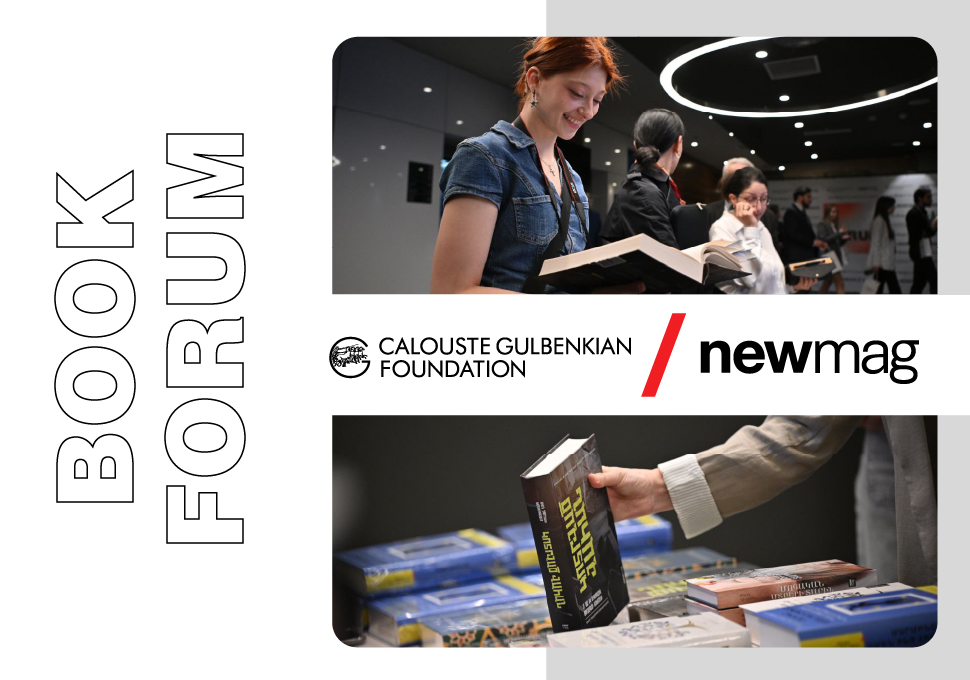
On the second day of the Gulbenkian & Newmag book forum, fundamental works in psychology, political science, and “Orientalism” were presented in Armenian translation.
For the first time in Armenian, Edward Said’s seminal book “Orientalism” was published, nearly half a century after its original release. Originally published in 1978, this groundbreaking study explores the Eurocentric biases and misconceptions about Arab-Islamic cultures and peoples.
The discussion was moderated by Razmik Panosyan, head of the Armenian Communities Department at the Gulbenkian Foundation. Minas Louryan, the book’s translator, emphasized the magnitude of the work:
“Translating and interpreting such a text with the right emphasis is extremely difficult. To truly understand it, I even consulted dictionaries of the original language. This translation was a collaborative effort, and the contribution of Mark Nshanian was invaluable. Although “Orientalism” is an academic work, it is written in a language accessible to the general public.”
Hayk Kocharyan, head of the Department of Arabic Studies at Yerevan State University, highlighted the book’s significance in shaping humanitarian thought:
“Such works fill gaps in intellectual discourse. While some scholars argue that ”Orientalism” is not strictly a scientific book, its success lies in its accessibility. Students of Oriental studies should read it at least once, it’s essential material for professional understanding.”
Orientalist and journalist David Sargsyan reflected on the book’s personal impact:
“Western perceptions of the East are largely shaped by media narratives. For instance, an American criminal is simply called a ‘criminal,’ whereas a Syrian or Egyptian committing the same act is often labeled a ‘terrorist.’ The Western public rarely sees the real East, instead viewing it through the lens of media bias.”
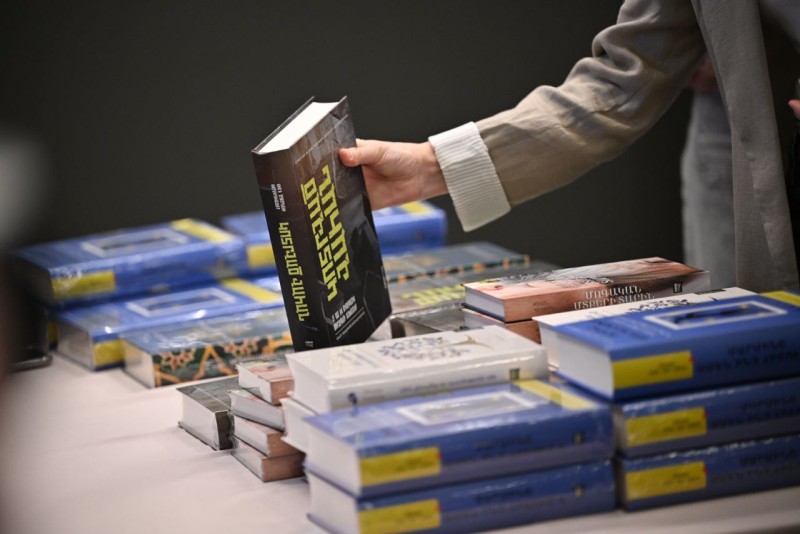
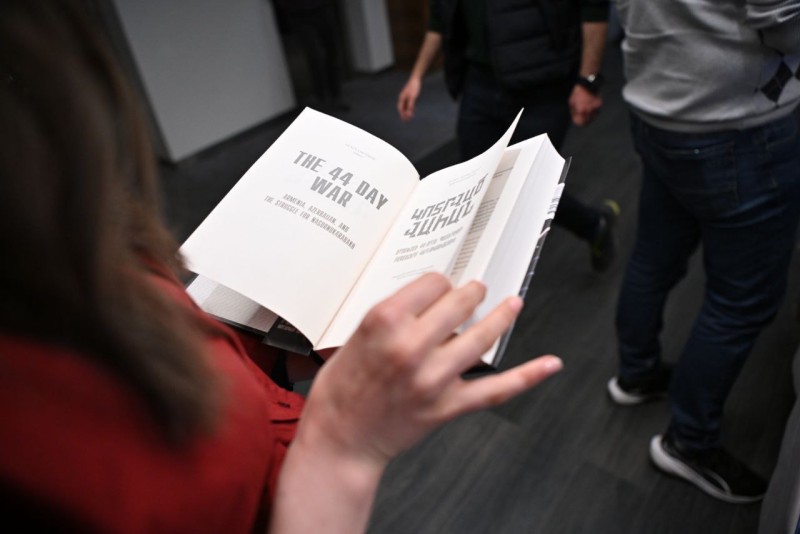
The next presentation featured “The Broken Shield”, a comprehensive analysis of the Second Karabakh War. This book examines key aspects of the conflict, including pre-war diplomacy, geopolitical developments, military strategies, and the role of entrenched narratives.
A collection of 16 analytical articles written by 17 Armenian and foreign experts, including political scientists, historians, and military analysts, “The Broken Shield” provides in-depth insights into Armenia and Azerbaijan’s domestic and geopolitical landscapes. The discussion was moderated by Karen Harutyunyan, editor-in-chief of CivilNet and a candidate of historical sciences.
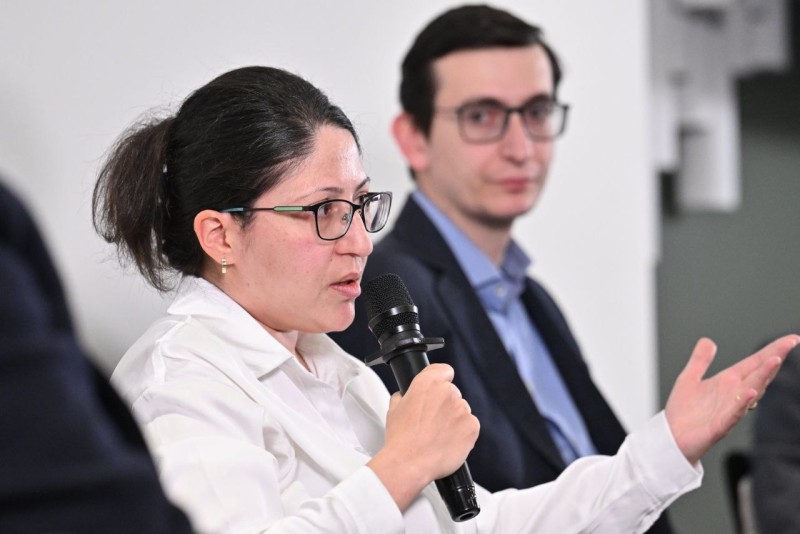
Historian and academic Naira Sahakyan contributed an article analyzing Armenian political leaders’ discourse on Artsakh:
“Over the years, Artsakh became a subject of internal political struggles. Governments and opposition parties blamed each other for the direction of the Artsakh issue, ultimately leading to a deadlock.”
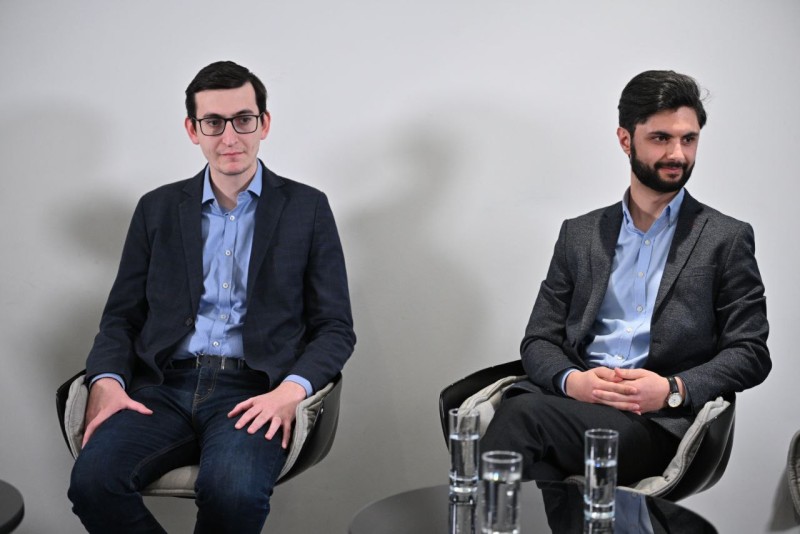
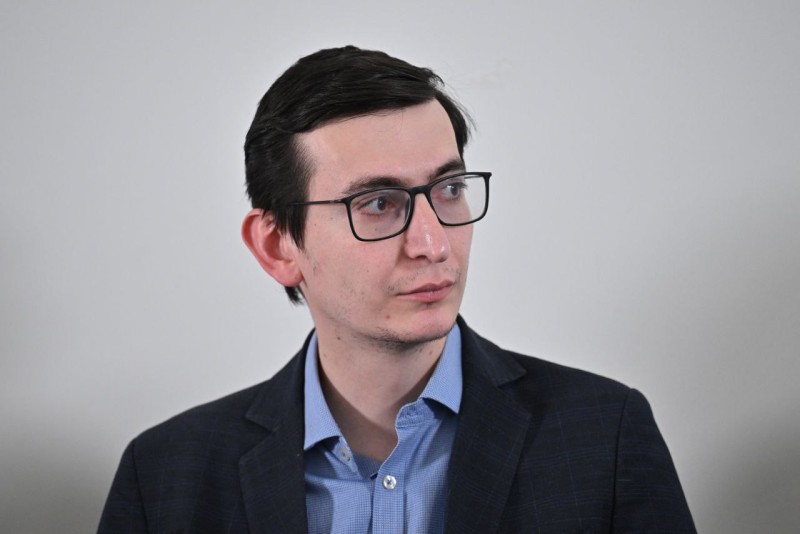
Military analyst Leonid Nersisyan examined the role of drones in modern warfare, comparing their impact in the Karabakh war with the ongoing Russia-Ukraine conflict:
“In the first month of the Russia-Ukraine war, bayraktar drones played a crucial role. However, as the war escalated, Russia’s air defense systems adapted. Drones, while effective early on, are among the easiest targets. In our case, the war was too short for Armenia to adjust its defenses accordingly.”
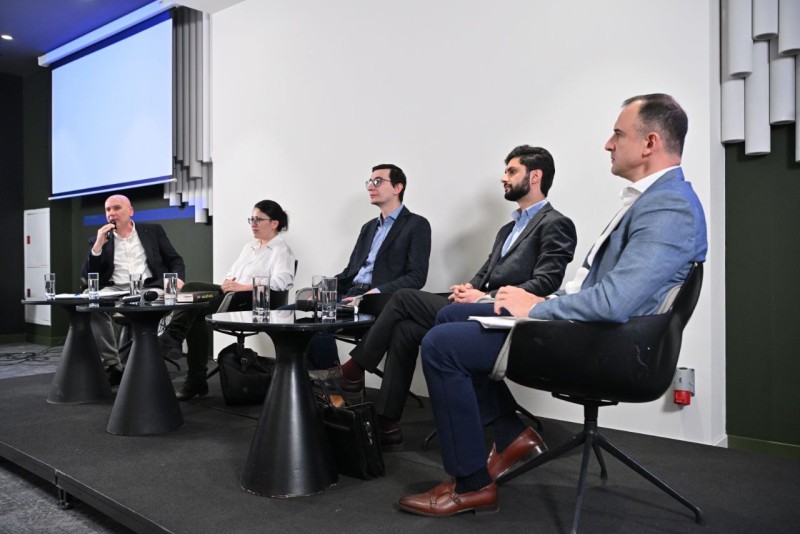
Candidate of Political Sciences Narek Sukiasyan explored Armenia’s complex relationship with Russia:
“Russia’s foreign policy regarding Armenia and Azerbaijan has remained one of its most stable and calculated strategies. Moscow is not interested in resolving the conflict in favor of either side, it thrives on maintaining a delicate balance.”
AUA professor Vahram Ter-Matevosyan, one of the book’s first readers, praised “The Broken Shield” as the most comprehensive analysis of the 44-day war to date:
“Previously, Newmag published “Storm Over the Caucasus”, which featured primarily Russian analysts. Since then, the situation has evolved significantly. “The Broken Shield” is unique in that it covers nearly all aspects of the conflict, Armenia’s foreign and domestic policies, the role of the diaspora, diplomacy, relations with Russia, Turkey, and Azerbaijan, as well as cultural heritage concerns.”
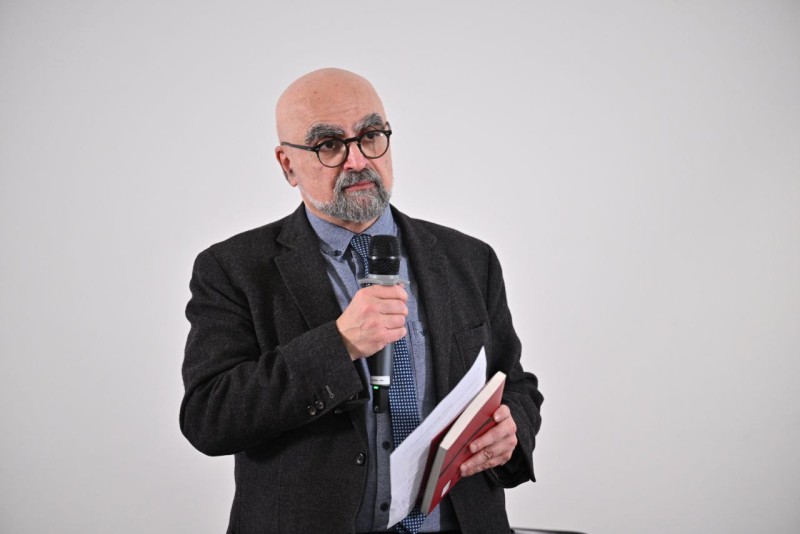
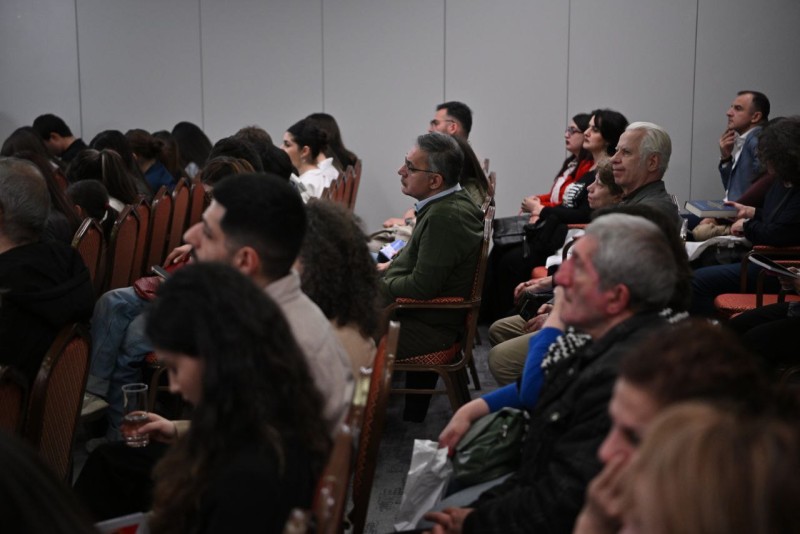
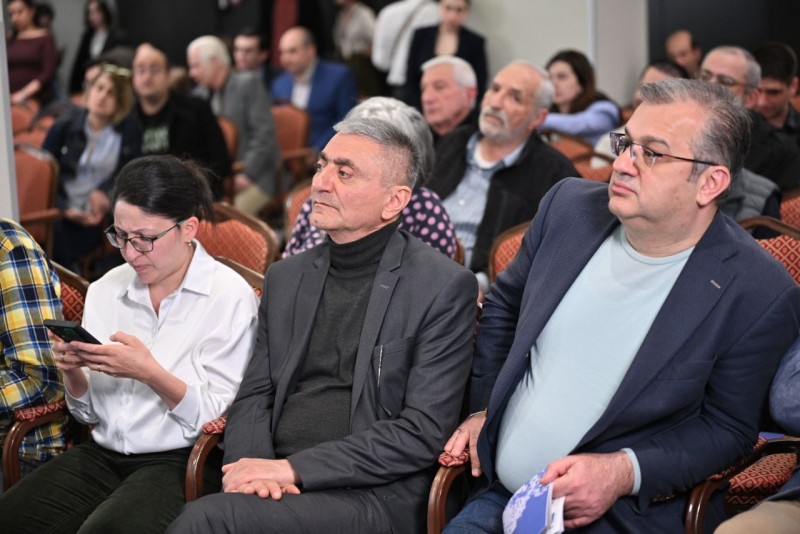
The two-day conference, “New Mind, New Translation”, was wrapped up by Razmik Panosyan and Artak Aleksanyan, head of Newmag Publishing.
Panosyan emphasized the importance of the books presented:
“We published “The Broken Shield” because, until now, no serious research had been conducted on the war. There were accusations and political debates, but no in-depth academic analysis. The books introduced at this forum are meant to encourage deeper, more analytical thinking in Armenian society.”
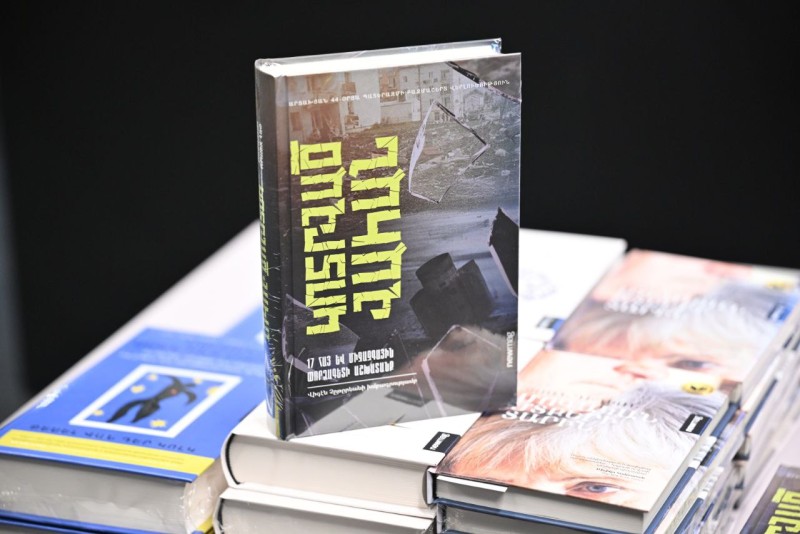
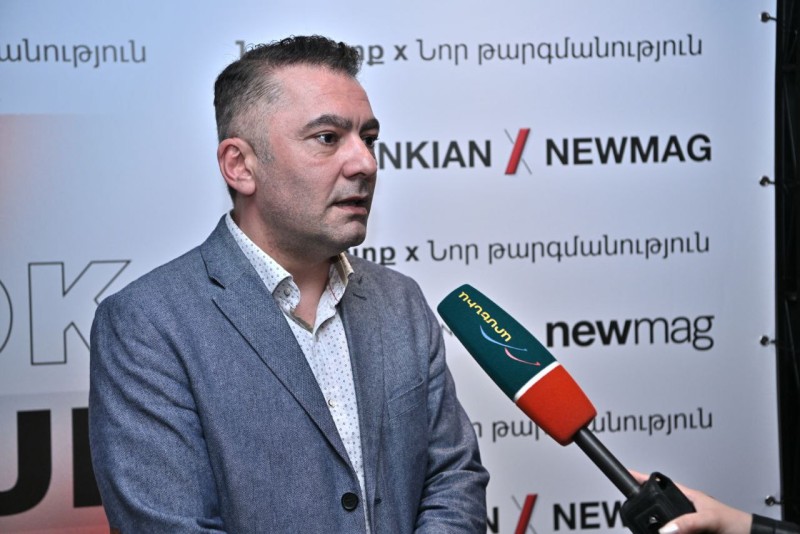
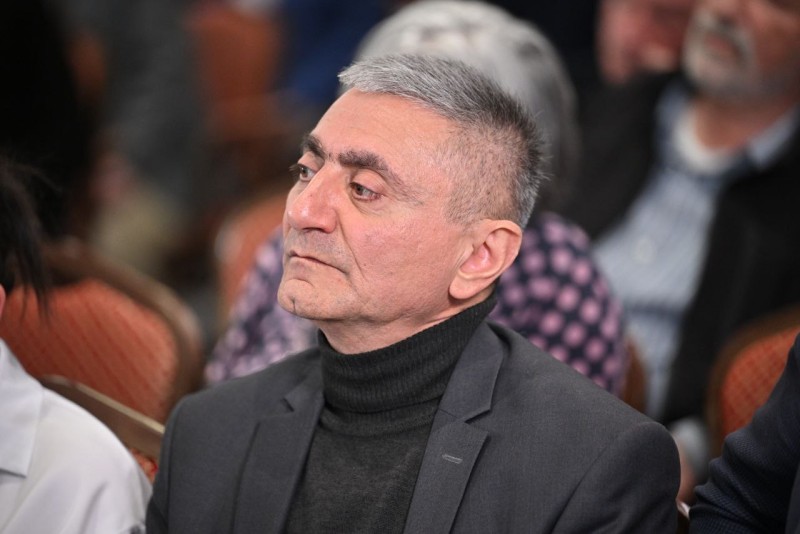
Artak Aleksanyan highlighted the significance of Newmag’s collaboration with the Gulbenkian Foundation:
“The Gulbenkian Foundation is one of the few organizations actively supporting book publishing. These books were chosen deliberately. We have thousands of war victims, grieving families, displaced Artsakh people, and no available psychological literature to help them navigate their trauma.
“Orientalism” is crucial in understanding the historical power dynamics between the East and West. Meanwhile, “The Broken Shield” answers a pressing question: Why did we lose? I hope readers will also find answers to the bigger questions, who is responsible and who should be held accountable.”
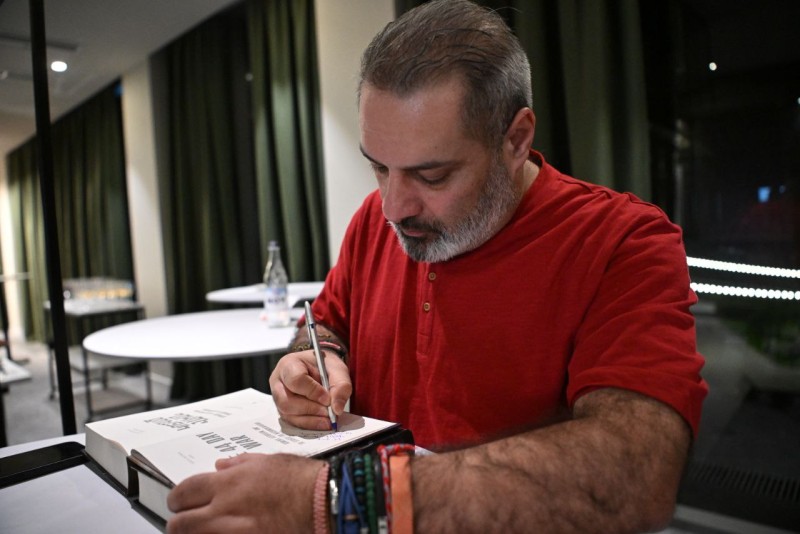
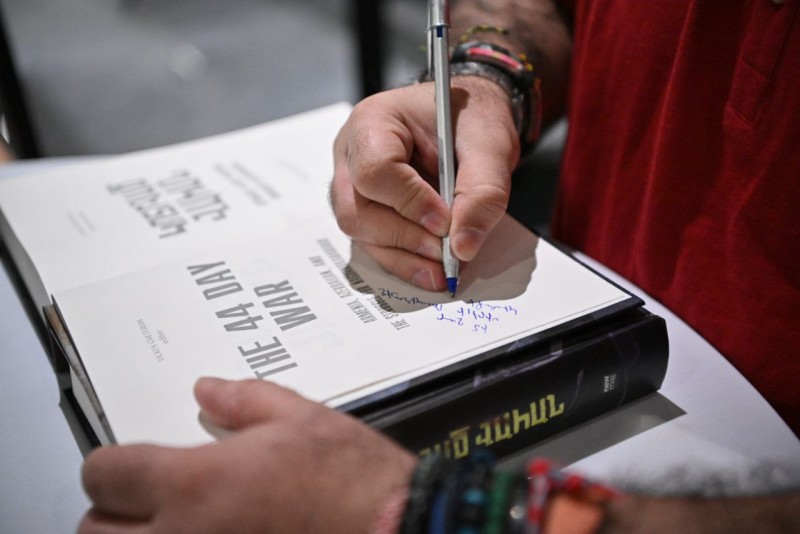
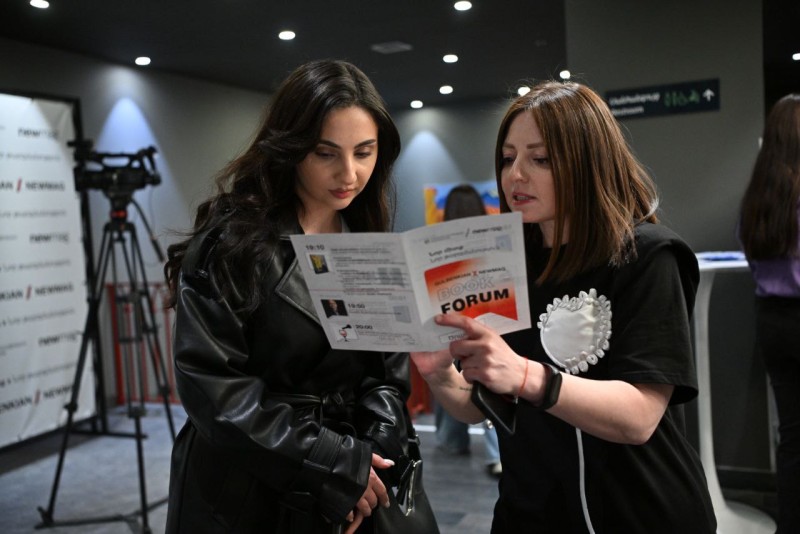
Over two days, the forum fostered important discussions, sparking deeper inquiry into the selected books and topics. The discussions often ran longer than scheduled, proving the urgency and relevance of these issues. Participants eagerly engaged with speakers, raising thought-provoking questions and voicing their concerns.
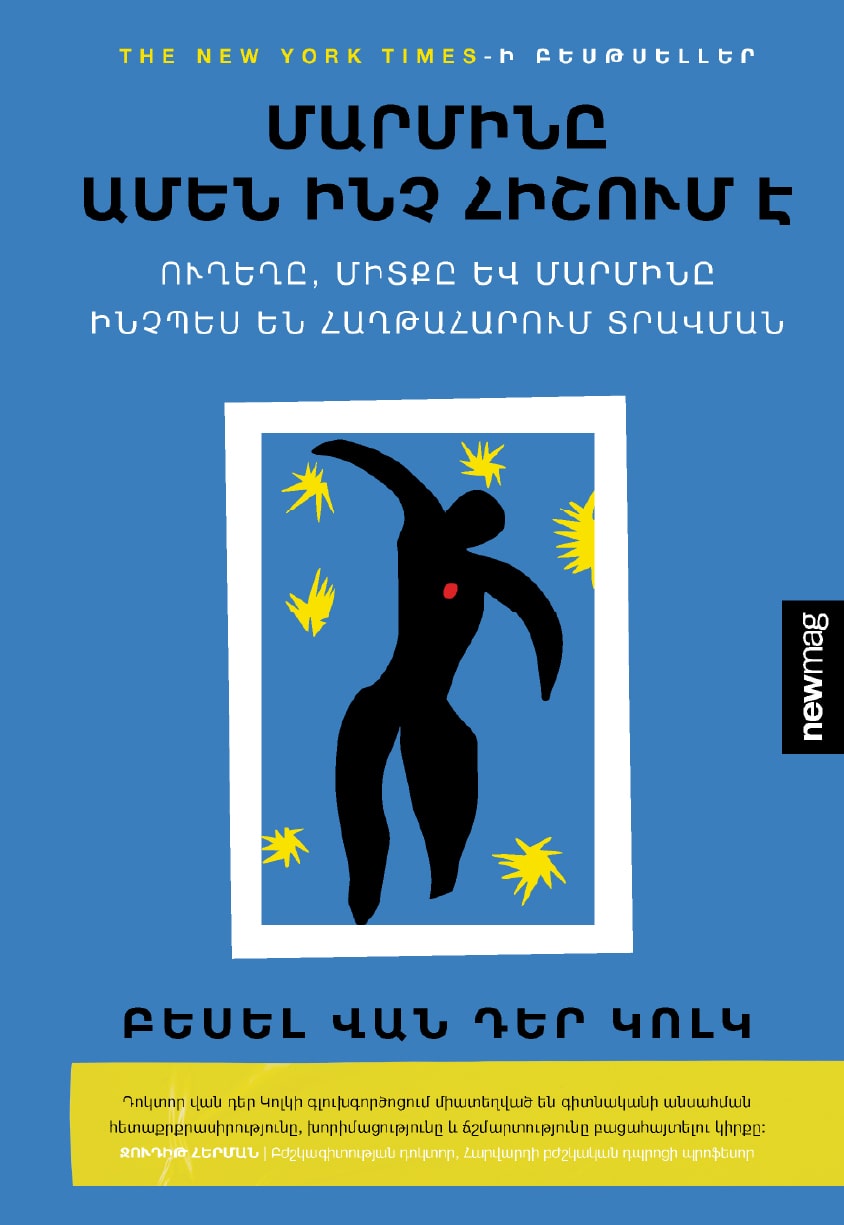
Bessel van der Kolk
7800 ֏
Description
Trauma radically changes the structure of the human brain, disrupts the delicate balance of the nervous system and the body's physiological reactions. In his bestselling work, world-renowned psychiatrist Besselvan der Kolk explains why painful memories are not forgotten, how they manifest in the form of physical and emotional problems, and how to overcome their consequences. Through true stories and scientific research, the author presents innovative therapeutic approaches that will help each reader restore mental and physical balance.
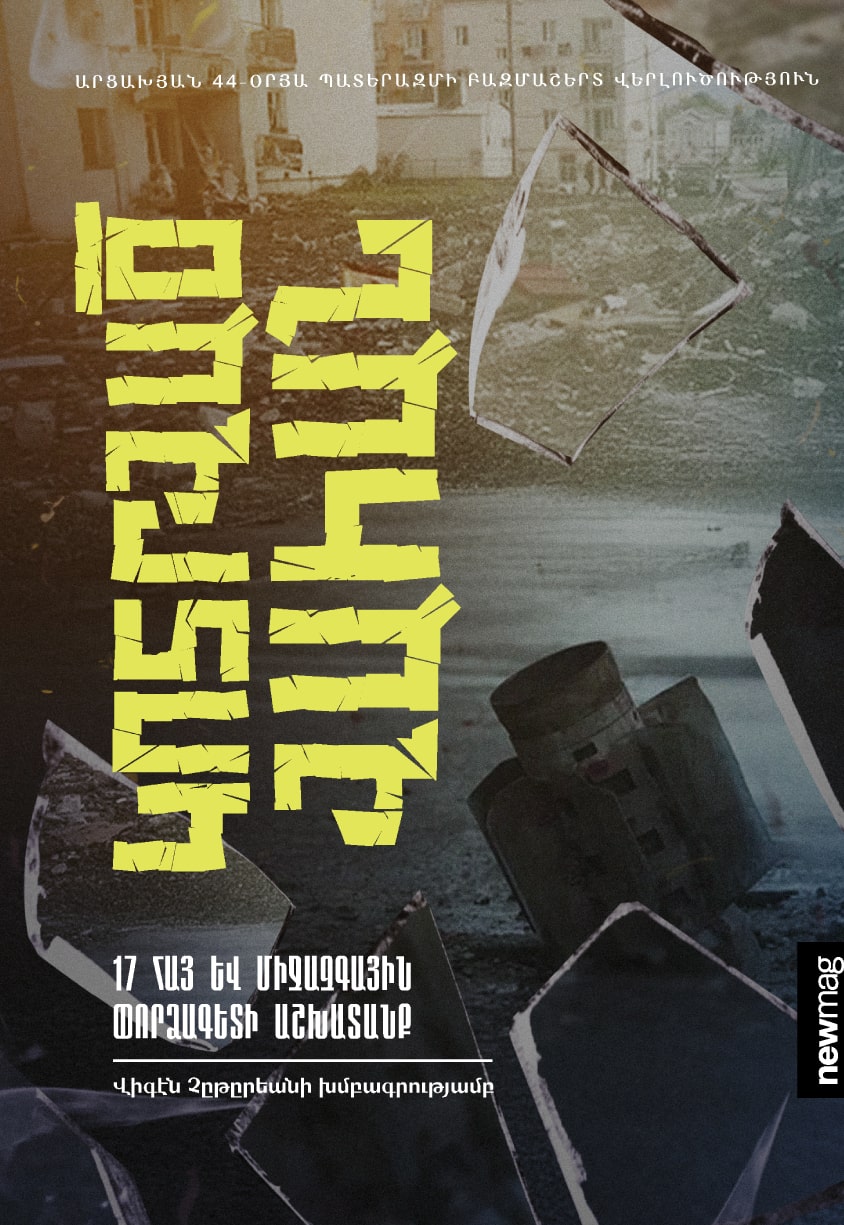
Vicken Cheterian
7800 ֏
Description
This book is a collection of 16 articles on the 2020 Karabakh War, the diplomacy leading up to it, geopolitics, entrenched notions, the arms race and military reforms or lack thereof, and social and domestic political developments in Armenia and Azerbaijan. 17 Armenian and foreign authors examine Armenia’s defeat in the 2020 war, the events and developments that preceded it. The research and publication of this book was funded by the Calouste Gulbenkian Foundation.
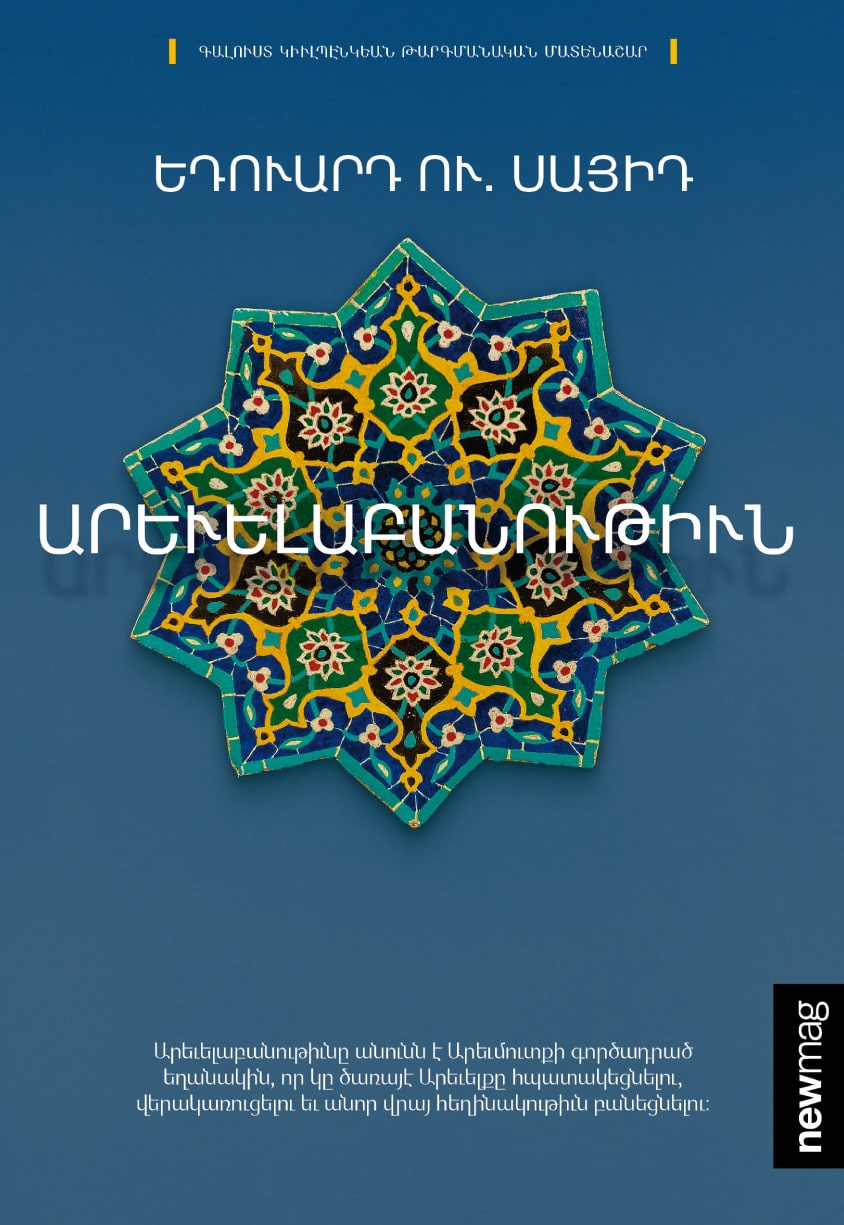
Edward W. Said
8800 ֏
Description
In this extensive, intellectually influential study, Said presents the history of Orientalism. The West, which had long dominated the Near and Middle East, viewed the East from a superior position. The East was called the “Orient” in the West, that is, “Other” in the West. This perspective continues to be entrenched in the West, and, since the West has not allowed the East to present itself, it also inhibits attempts to fully understand the East.
This groundbreaking book, first published in 1978, remains one of the most influential studies in social science, especially in the fields of ethnography and postcolonial studies. Said was critical of the concept of “Orientalism,” which he considered to be a set of false assumptions of the West about the East.
This Throughout the book, Said presents “the Eurocentric prejudice against Arab-Islamic peoples and cultures.” He shows that the false and romantic perception of Asia and the Middle East, rooted in Western culture, served as a justification for the colonial and imperial ambitions of Europe and the United States.
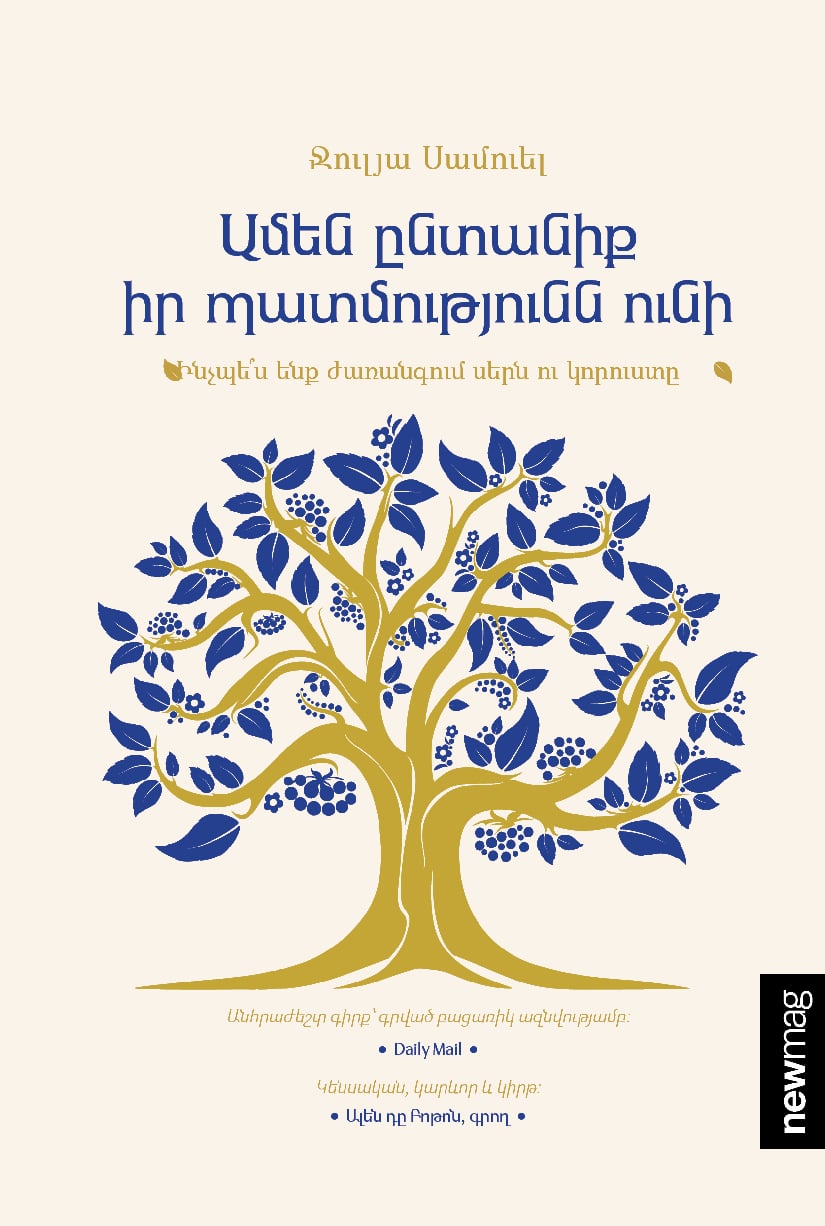
Julia Samuel
6800 ֏
Description
Why do some families thrive in adversity while others fragment? How can families weather difficult transitions together? Why do our families so often exasperate us? And how can even small changes greatly improve our relationships?
In Every Family Has a Story, bestselling psychotherapist Julia Samuel turns from her acclaimed work with individuals to draw on her sessions with a wide variety of families, across multiple generations. Through eight beautifully told and insightful case studies, she analyzes a range of common issues, from loss to leaving home, and from separation to step-relationships, and shows how much is, in fact, inherited—and how much can be healed when it is faced together. Exploring the relationships that both touch us most and hurt us most, including the often under-appreciated impact of grandparents and siblings, and incorporating the latest academic research, she offers wisdom that is applicable to us all. Her twelve touchstones for family well-being—from fighting productively to making time for rituals—provide us with the tools to improve our relationships, and to create the families we wish for. This is a moving and reassuring meditation that, amid trauma and hardship, tells unforgettable stories of forgiveness, hope and love.
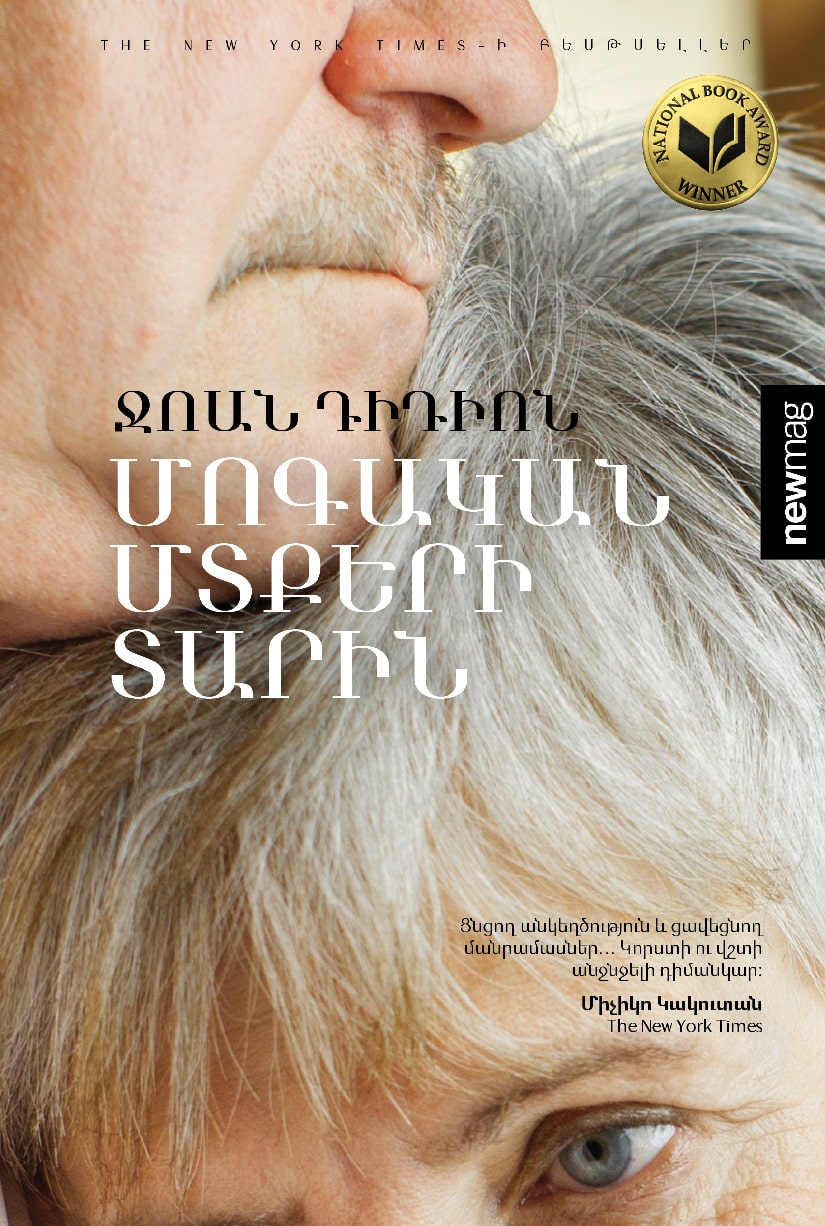
Joan Didion
5800 ֏
Description
In this book, Joan Didion tells the story of the most difficult year of her life. A year when her husband, writer John Gregory Dunne, with whom she had lived for more than 40 years, suddenly passed away. The book is a moving memoir about the author's grief, about overcoming loss, understanding what happened, and about the signs that, if noticed, might have prevented it. The author immerses herself in the disorienting and surrealistic experience of loss, reflecting on the rituals and memories that shape our understanding of life and death. The memoir is not only a story of personal tragedy but also a study of grief, resilience, and the power of the human spirit.
Read also

Winterfest to feature David Georgyan’s sci-fi action novel Impedance (trailer)

At Winterfest 2026, Newmag will present Marianna Hakobyan’s “Don’t Change the Names” (trailer)

Closing and Award Ceremony of the “Sprout in Armenian – 2025” Competition at Newmag Winterfest

“I hope my story will inspire many and help them keep believing and dreaming.” Henrikh Mkhitaryan’s welcoming speech to Armenian fans (video)

























